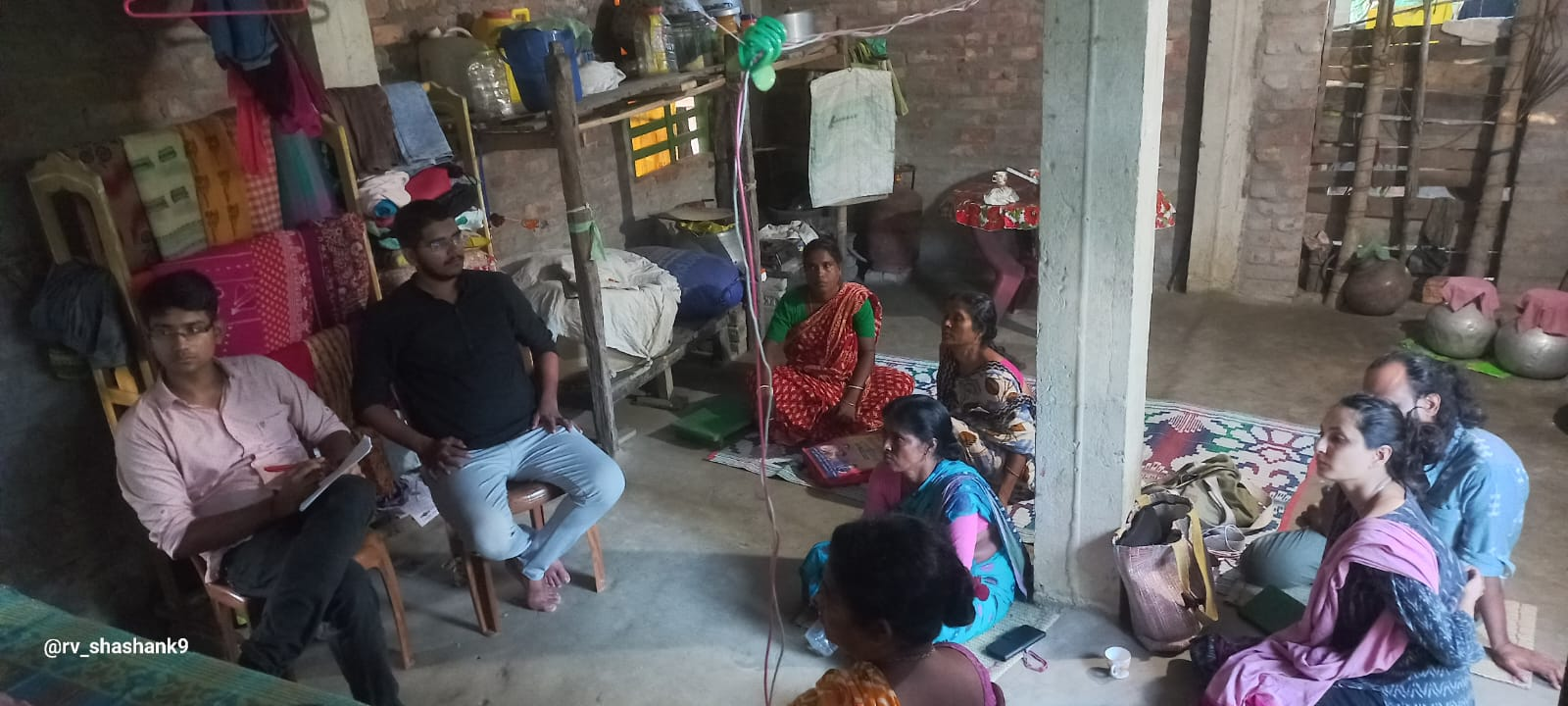
Climate Resilience and Climate Adaptation
The adverse effects of climate change have begun manifesting at an alarming pace in every walk of our lives. The need to address these issues is now connected with the basic question of the future of the human race and other species on Earth. Empowering the rising numbers of climate-affected people by bolstering climate resilience and climate adaptation, thus, has become the need of the hour.
At DISHA, we are acutely aware of this necessity. We have been working for more than three decades on various issues directly connected to climate change. Most of our activities aim to address the broader issue of climate change through focussed work on several aspects of environmental protection and prevention of environmental degradation. From our various activities to ensure eco-friendly waste management to our almost two decades of work on the issue of coastal environmental degradation, protection of the vulnerable ecology of the Sundarban mangrove forests, to our works to safeguard the environment and ecology of rivers, wetlands, and waterbodies and train climate affected communities in nature-oriented farming, a lot of it has the underlying theme of ensuring that grassroots-level community-empowerment vis-à-vis sustaining themselves through adverse circumstances, including the adverse effects of climate change.
A significant volume of our work is aimed at the empowerment of the fishing community of West Bengal and beyond. We also work extensively for the betterment of the conditions of many forest-dependent communities and the poor families dependent on farming and related activities for their subsistence. These grassroots-level communities are also the ones who are most adversely impacted by climate change. Their security in terms of availability of food, habitat, and livelihood continues to be increasingly threatened because of climate adversities. For example, climate change has been one of the major contributing factors in the environmental degradation of the land and water bodies throughout south Bengal. This has affected not only the livelihood security of many fishworkers and cultivators but also the quality of the food available to the entire population. Likewise, the increasing number, frequency, and ferocity of cyclones along the coastlines of south Bengal are directly attributable to climate change. These cyclones have devastated many homesteads, and continue to be a severe threat to the habitat security of a few million people who live in the coastal blocks of Purba Medinipur and the North and South 24 Parganas.
In south Bengal, there is a lacuna in terms of sustained and systemic efforts in developing climate resilience and climate adaptation among the communities so that they can effectively address these pressing concerns of food, habitat, and livelihood. One of our key objectives at DISHA is to step in and fill this void. We continue to undertake a host of activities to this end. Our work in terms of developing climate resilience and climate adaptation among the severely climate-affected communities of West Bengal can be broadly classified under the following three headings:
- Training on climate-resilient livelihood practices
- We facilitate training activities in various villages of the coastal blocks of the Purba Medinipur district and we have been doing this in the Sundarban area on nature-oriented and climate-resilient farming (by using more resilient traditional crop varieties and using a wide array of organic pest repellents to ward off pest attacks that increase during adverse weather conditions and techniques that permit cultivation even on saline soils) and fish farming (by promoting low-cost and organic practices to better manage losses inflicted by climate adversities). Environmental degradation, erosion, increasing salinity of the soil, frequent occurrence of cyclones, and depletion of natural resources has made it difficult for rural communities to obtain sufficient yield in terms of food grains, vegetable, fish, livestock, etc. To ensure their livelihood security, we conduct and facilitate these trainings which focus on imparting sustainable and nature-oriented livelihood skills. (Link to our section on nature oriented-farming and allied livelihood).
- We facilitate training activities in various villages of the coastal blocks of the Purba Medinipur district and we have been doing this in the Sundarban area on nature-oriented and climate-resilient farming (by using more resilient traditional crop varieties and using a wide array of organic pest repellents to ward off pest attacks that increase during adverse weather conditions and techniques that permit cultivation even on saline soils) and fish farming (by promoting low-cost and organic practices to better manage losses inflicted by climate adversities). Environmental degradation, erosion, increasing salinity of the soil, frequent occurrence of cyclones, and depletion of natural resources has made it difficult for rural communities to obtain sufficient yield in terms of food grains, vegetable, fish, livestock, etc. To ensure their livelihood security, we conduct and facilitate these trainings which focus on imparting sustainable and nature-oriented livelihood skills. (Link to our section on nature oriented-farming and allied livelihood).
- Climate-oriented entrepreneurial capacity-building
- Alongside training on climate-resilient livelihood practices, our community empowerment activities also include orienting rural communities, especially women from rural families from these climate-affected areas towards entrepreneurship based on nature-oriented and climate-resilient agriculture, fishing, mushroom cultivation, livestock rearing, etc. This activity is aimed not only at community-based rural empowerment but also more specifically at women’s empowerment in this regard.
- Alongside training on climate-resilient livelihood practices, our community empowerment activities also include orienting rural communities, especially women from rural families from these climate-affected areas towards entrepreneurship based on nature-oriented and climate-resilient agriculture, fishing, mushroom cultivation, livestock rearing, etc. This activity is aimed not only at community-based rural empowerment but also more specifically at women’s empowerment in this regard.
- Planning cyclone-relief with a long-term view
- Our disaster relief activities focuses not only on providing materials for immediate relief, but equipment and materials that would help them in their livelihoods and sustenance in the future.
- Our disaster relief activities focuses not only on providing materials for immediate relief, but equipment and materials that would help them in their livelihoods and sustenance in the future.
These are only some specific activities that deal with the issue of developing climate resilience and climate activities. A host of our other activities, such as our work on waste management, rivers, wetlands, and waterbodies, our work with the coastal, fishing, and forest-dependent communities, and our campaigns for a clean environment are aimed at bringing mass- and policy-level focus on the issue of climate change. These are, in the broader context, connected with ensuring sustenance and livelihood-security of climate-affected communities not only from West Bengal but also all over India.


